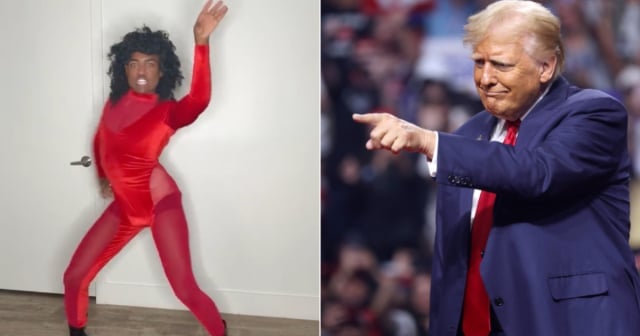In a symbolic meeting held this Wednesday in the Oval Office of the White House, outgoing President Joe Biden and President-elect Donald Trump had an encounter that marks the formal start of the transition of power.
In a gesture of political courtesy that contrasts with the tension that has marked their relationship, both leaders shared a moment of apparent reconciliation, demonstrating a temporary commitment to the country's political stability.
The Oval Office: a setting of unusual cordiality
The meeting between Biden and Trump took place in an atmosphere of respect and even cordiality. As the press entered, both were seated across from each other in individual armchairs, with the fireplace lit in the background. Biden, in his role as host, welcomed Trump and, with a friendly demeanor, shook his hand.
"Well, Mr. President-elect, Donald, congratulations… I hope we have a smooth transition. Welcome," said the Democrat with a smile, as Trump listened, leaning forward with his hands clasped.
The Republican responded by expressing gratitude for the warm reception and praised the cooperation that Biden was showing to facilitate the transfer of power. "I will make sure you have everything you need for a smooth transition."
"Politics is tough and often a complicated world, but today is a good day in this world," Trump commented in his first words following Biden's invitation.
He then added, "I really appreciate that the transition is going so smoothly and hope it continues that way."
In response, Biden simply replied with a brief "you're welcome."
An act that marks a historical difference
The context of this transition is noteworthy, as in 2020, when Biden won the election, Trump not only refused to acknowledge his defeat but also spread theories of fraud and declined to attend the inauguration ceremony of his successor.
In this way, Trump became the first president of the United States in nearly 150 years to not participate in the peaceful transfer of power.
However, this time, the situation is very different, with a Trump seemingly willing to cooperate and to set aside the hostile rhetoric that characterized his relationship with Biden.
A temporary truce in a relationship marked by hostility.
The electoral campaign of both leaders was marked by insults and personal attacks.
Trump described Biden as a "corrupt" politician and even threatened to "put his son in jail."
Biden, for his part, described the then-Republican candidate as "a threat to democracy" and considered him "the kind of person you'd like to kick in the rear."
Nevertheless, in the Oval Office, both decided to temporarily set aside their differences and adhere to protocol, symbolizing the intention for an orderly and peaceful transition.
The meeting this Wednesday at the White House marks a moment of stability in a politically charged atmosphere filled with tensions.
With an eye on the inauguration of January 20, Biden and Trump have exemplified the importance of democracy and the peaceful transfer of power.
In the coming days, the teams of both presidents will continue to collaborate to ensure an unprecedented transfer of power.
Trump assumes the presidency in a favorable context for his party, as the Republican Party has regained control of the Senate and retains a majority in the House of Representatives, a situation that could ease the implementation of his policies.
This situation recalls his first term (2017-2021), when the Republicans also dominated both chambers during the first two years.
Trump to reporters: "I suspect I won't run again" in the elections.
Before heading to the White House, Trump joked about his future in politics during a meeting with Republican lawmakers at a hotel near the Capitol.
In a brief speech, he spoke about his victory in the elections held on November 5 and hinted, in a joking manner, that he would not run for office again.
"I suspect I won't show up again unless they say it's good, then we'll think of something else," he said, which elicited laughter from those present.
This comment has opened up speculation about his possible return to politics, although the Constitution of the United States limits presidents to only two terms.
Filed under:
